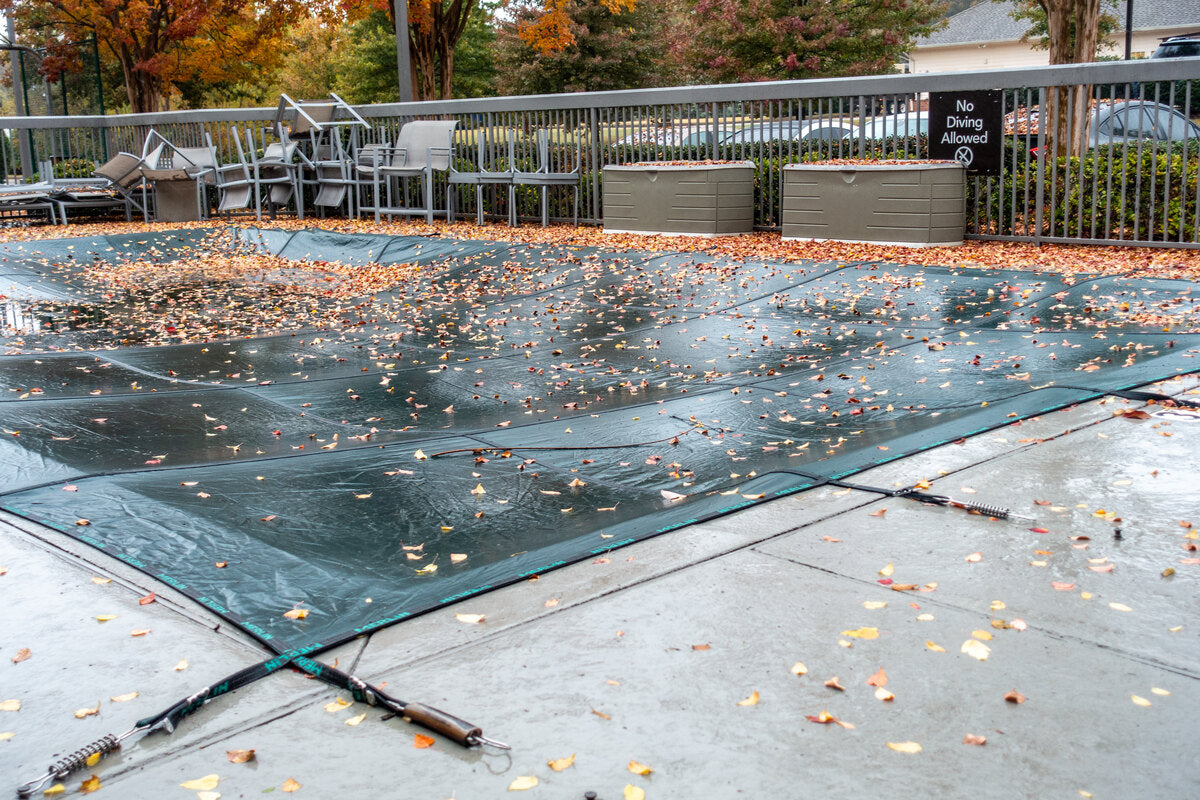
Why You Should Test Your Pool Water in the Winter Season
|
|
Time to read 4 min
|
|
Time to read 4 min
As pool owners bid farewell to the summer season and embrace the cooler months, attention shifts to the critical task of pool closure. This process, often overlooked, is pivotal to ensuring the pool's longevity and health during its dormant phase. This guide delves into the intricacies of post-closure pool care, emphasizing the importance of regular water testing and maintenance.
When a pool is closed for the season, it doesn't mean maintenance should halt. On the contrary, this period is crucial for preserving the pool's condition. Neglecting water testing and chemical balance can lead to algae growth, equipment damage, and costly repairs. Therefore, understanding the importance of ongoing care is vital for any pool owner.
Closing a pool involves more than just covering it. It's a comprehensive process that includes cleaning, chemical balancing, and preparing for the specific needs of your climate. Winterizing is essential in colder regions, while reducing usage might be more appropriate in warmer areas. Regardless of location, the closure process sets the stage for the pool's health during its inactive period.
The first steps after closing your pool are critical. They involve testing and balancing water chemistry to ensure the pool is stable. This includes adjusting pH levels, sanitizing the water, and ensuring all other chemical levels are within the recommended range. Proper initial care can significantly reduce maintenance efforts throughout the closure.
The frequency of water testing post-closure is a debate among pool owners. While a weekly check is a standard recommendation, various factors can necessitate adjustments. These include the effectiveness of your pool cover, local weather patterns, and the presence of trees or wildlife. For instance, pools under heavy foliage may require more frequent testing due to the potential for debris and contaminants.
Essential water parameters include pH, sanitizer levels (chlorine or bromine), alkalinity, and calcium hardness. Each plays a unique role in pool health. pH level ensures the water isn't too acidic or basic, which can harm pool equipment and affect swimmer comfort. Sanitizer levels keep the water free from harmful microorganisms. Alkalinity is a pH buffer, while calcium hardness prevents surface damage and scaling.
Weather, surrounding environment, and pool cover type significantly affect water chemistry. Rainwater can dilute chemicals and alter pH levels, while snow and ice can lead to water expansion and potential damage. Environmental pollutants, such as leaves and debris, introduce contaminants that can unbalance water chemistry. A quality pool cover isn't infallible but can mitigate many of these issues.
Choosing the right tools for water testing is crucial. Test strips and kits are famous for their ease of use but require accurate color matching. Digital testers offer more precision but at a higher cost. For those seeking thorough analysis, professional testing services provide comprehensive water quality reports.
Understanding test results is vital. High pH levels can lead to scaling and cloudy water, while low levels can cause corrosion and irritate skin and eyes. Sanitizer levels must be maintained to prevent algae and bacteria growth. If imbalances are detected, adjusting your pool's water chemistry is necessary. This might involve adding chemicals to raise or lower pH, alkalinity, and sanitizer levels.
Maintaining a pool during its closed period involves routine checks, algae prevention, and winterizing chemicals. Regular inspections of the pool cover and equipment are essential. Algae can be a persistent issue, even in closed pools, so preventative measures are crucial. Winterizing chemicals help maintain water quality during the cold months and ease reopening.
Safety is paramount when handling pool chemicals. Proper storage, usage, and disposal of chemicals are critical to prevent accidents. Additionally, ensuring the pool area remains secure during closure is vital, especially in households with children and pets.
Eco-friendly practices in pool care are gaining traction. Sustainable water testing methods and environmentally friendly chemicals can significantly reduce the ecological impact of pool maintenance. These practices benefit the environment and can be gentler on the pool's surfaces and equipment.
Technological advancements have introduced smart pool monitors and automated testing systems, making pool care more efficient and less labor-intensive. These devices can monitor water quality, alert owners to imbalances, and, in some cases, automatically adjust chemical levels. Embracing these technologies can simplify pool maintenance and provide peace of mind during the off-season.
Regular water testing and maintenance during the pool's closed period are essential to preserve its condition and prepare for an easy reopening. Understanding the frequency of testing, monitoring key parameters, and adopting the right tools and strategies are critical for effective pool care.
For pool owners looking to expand their knowledge, additional resources are available. These include books, online forums, and professional advice. Engaging with a community of pool owners can also provide valuable insights and support.
The importance of community and expert guidance in pool maintenance cannot be overstated. Whether through online forums, local pool maintenance groups, or professional consultations, leveraging collective knowledge and experience can significantly enhance your pool care practices. You can also check out our additional resources on pool care, maintenance, and more.
Have you got a hot tub, a swimming pool, or both? Great! You've come to the right place if you want quality hot tub and pool chemicals shipped to your door. At Pool Goods, we are here to help you enjoy every day in your hot tub with the best pool and spa products on the market shipped right to you!